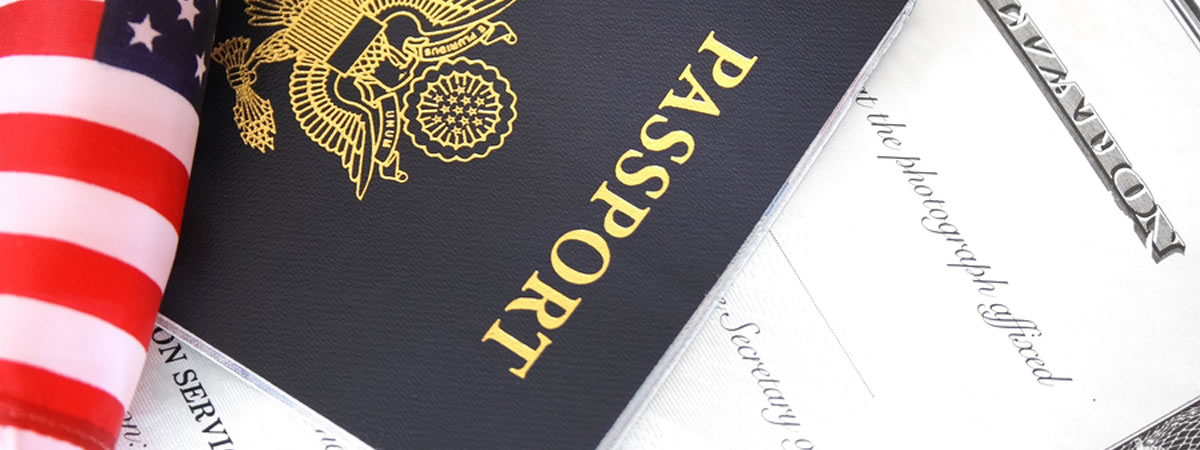Obstacles to Obtaining U.S. Citizenship
According to research conducted by the Migration Policy Institute (MPI), around 1.3 million foreign-born individuals move into the U.S. each year. While not all migrants are interested in ultimately obtaining American citizenship, many of them are. The good news is that getting U.S. citizenship is a possibility for many people who have entered the country. However, gaining American citizenship can also be a very lengthy and challenging process. If you are looking at how to obtain US citizenship yourself, or for a loved one, it is important that you are ready to take on any legal hurdles that you might face. You should never go through the naturalization process on your own.

Five Obstacles To Know When It Comes To Obtaining American Citizenship
Tax Problems
If you owe back taxes to the IRS, you need to take immediate action to resolve this issue. For immigrants seeking permanent citizenship in the United States, the problem of unpaid taxes will simply not go away on its own. Your application for American citizenship will almost certainly be denied if you have outstanding tax obligations and have made no effort to rectify the issue. That being said, back taxes are not an automatic bar to citizenship either. United States Citizenship and Immigration Services (USCIS) has the ultimate authority to make a decision on your citizenship application, not the IRS. If an applicant hoping to gain U.S. citizenship can demonstrate a good faith effort to contact the IRS and can show reasonable progress made towards resolving their tax obligations, a citizenship application can get back on track. Still, unpaid taxes are a big issue that must be addressed. If you find yourself in this position, you need to speak to a qualified immigration attorney near you as soon as possible.

Family Issues
An application for getting U.S. citizenship might also be denied if there are issues regarding your family life. First and foremost, this is an issue for those seeking citizenship through a marriage to an American spouse. Though it can be easier to obtain a green card through marriage, applicants must be ready for the fact that immigration officials will likely pry into their personal life to confirm that their marriage is legitimate. This can be uncomfortable and frustrating, but it is part of the process. There are other circumstances where sensitive family issues can create citizenship hurdles as well. For instance, if it is found that you have unpaid child support, your application for U.S. citizenship will likely be denied.
Selective Service
Under U.S. immigration rules, male green card holders who are between 18 and 25 are legally required to register for selective service. This is because male American citizens are required to do the same. For those who meet this criteria, their selective service number must be provided along with their application for citizenship. It is an important step when obtaining American citizenship. If you have any questions about this issue, or you believe that you have failed to register properly, you should speak to an experienced attorney immediately.
Questions of Moral Character
USCIS requires that applicants must demonstrate ‘good moral character’ in order to obtain American citizenship. Generally, the USCIS will look at an applicant’s conduct over the last five years. Though, in certain cases, officials may review an applicant’s conduct for many years into the past. In regards to moral fitness, there are two big issues that will be reviewed:
- An applicant’s criminal record; and
- An applicant’s honesty through the immigration application process.
Both a criminal record and lack of candor during the application process can result in American citizenship being delayed or denied. It is best to speak with an experienced immigration lawyer in your area if you do have a criminal record and are hoping to obtain U.S. citizenship.
Problems with Documents
Finally, applicants must remember that the application process for obtaining American citizenship is both long and complex. There are many forms involved and many documents that may be requested by immigration officials. To the extent possible, requested documents must be produced. The exact nature of document requests will always depend on the specific immigration case in question. Any irregularities with documents, especially documents from an applicant’s country of origin, might delay or even derail their application for citizenship. The bottom line is simple: You need to avoid any problems with documents by thoroughly preparing in advance and working with an experienced immigration professional.


















